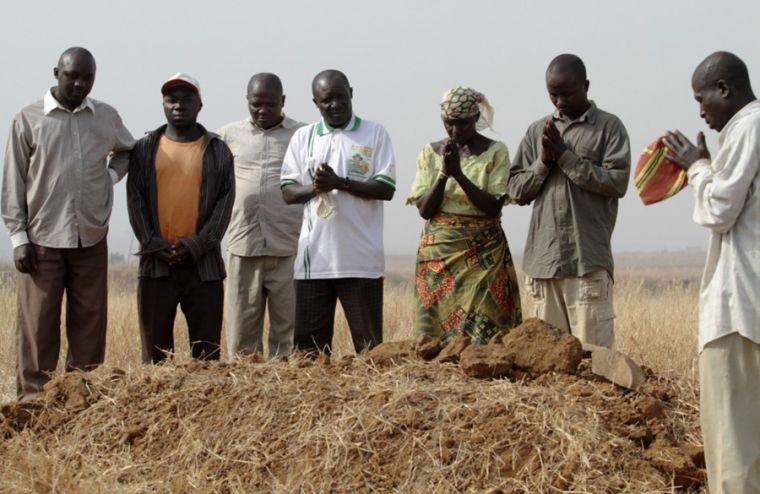Nigeria is failing to protect Christian farmers from Fulani attacks, says major new report
Nigeria's government is not doing enough to protect Christian farmers from Fulani herdsman encroaching on their lands, a major new report says – and it also warns against portraying the conflict in religious terms.
The violent conflict is now as dangerous as the jihadist group Boko Haram in the northeast, the study claims, as fighting escalates between the nomadic roaming cattle herders from northern Nigeria and the agrarian farmers in central and southern Nigeria.

The report by The Crisis Group says drought and desertification in the north of the country, which borders the Sahara desert, have forced roaming herdsmen south, creating tensions and competition for land.
The report warns the conflict 'is aggravating already fragile relations among the country's major regional, ethnic and religious groups'.
It says: 'The south's majority Christian communities resent the influx of predominantly Muslim herders, portrayed in some narratives as an ''Islamisation force''. Herders are mostly Fulani, lending an ethnic dimension to strife.'
The report critises President Buhari's government, describing its response to the crisis and failure to protect Christians as 'wanting' and 'short-sighted'.
It says: 'Federal security and law enforcement agencies have established neither early-warning nor rapid response mechanisms; they have not arrested and prosecuted perpetrators of violence or offered redress to victims. Until recently, officials have paid little if any attention to improving livestock management practices to minimise friction with agrarian communities.
'State governments' responses overall have been short-sighted; most have failed to encourage community-level dialogue. As a result, both herders and farmers are taking matters into their own hands, further aggravating conflicts.'
But the report also warns that herders' attacks on farmers have 'spawned dangerous political and religious conspiracy theories'. It urges Christians to resist the narrative fuelled by some church leaders that the Fulani attacks are 'a subtle form of jihad' or Islamification.
'These charges are not supported by any solid evidence, but they are aggravating inter-faith distrust and, undermining the country's fragile unity,' the report says. 'The Sultan of Sokoto, Mohammed Sa'ad Abubakar III, spiritual head of Nigerian Muslims and a prominent Fulani, has repeatedly stressed that Fulani herders who kill should be prosecuted as criminals and even terrorists, but many remain unconvinced in a country with deep inter-faith suspicions.'
In a rebuke to some pastors, it concludes: ' The interplay of herders' attacks on farming communities and inflammatory rhetoric by ethnic and Christian leaders in the south could spark even more violence.
'The geographic spread or escalation of the conflicts could put Nigeria's military and other security forces under greater stress, diverting the resources they need for operations against Boko Haram in the north east, militants in the Niger Delta and other security challenges.'











